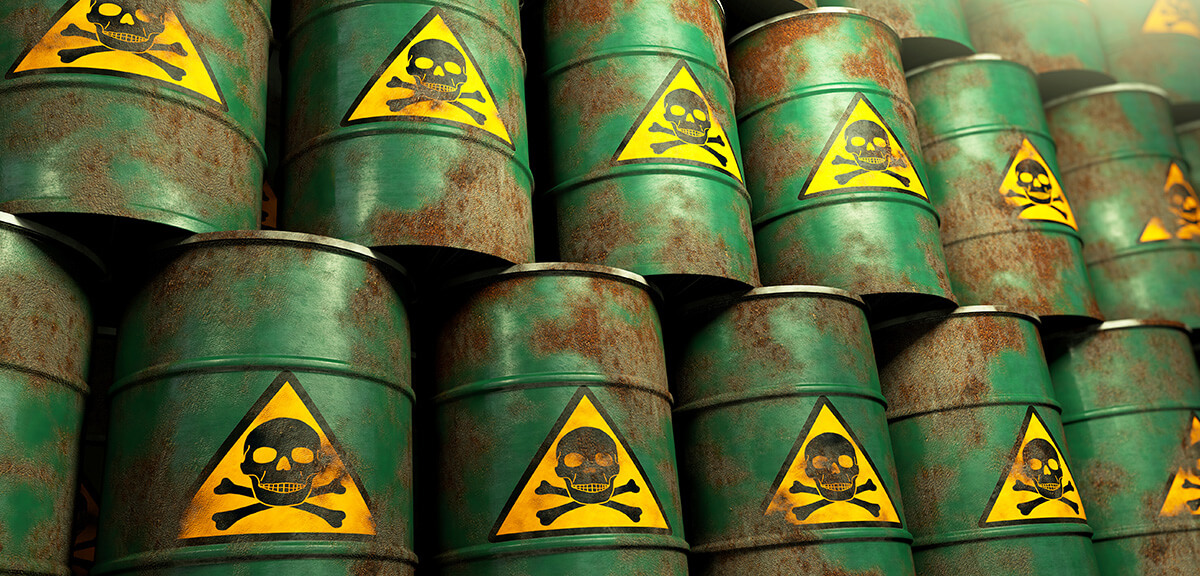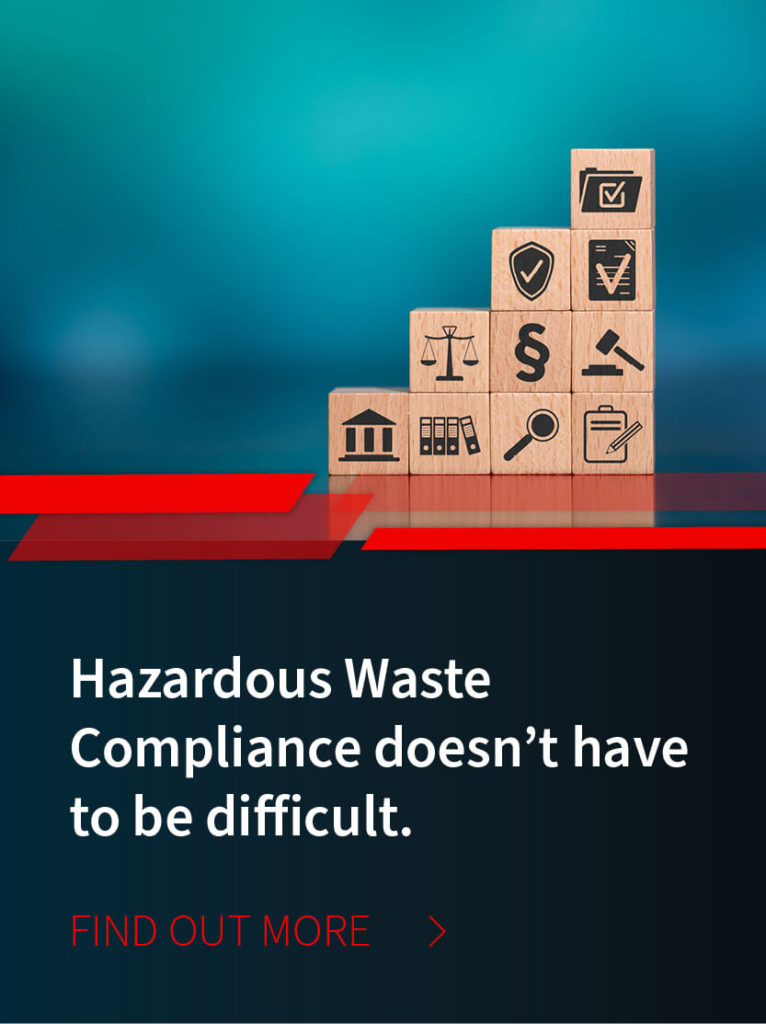
/ IN THIS BLOG
01 / What is an EPA-authorized state?
The Resource Conservation and Recovery Act (RCRA), which established the EPA more than 50 years ago, is unusual for delegating the primary responsibility for implementing federal hazardous waste regulations to individual states that it deems qualified.
This arrangement was created to ensure that states have flexibility in creating rules by which they can meet the minimum standards of RCRA while taking local exigencies into account, and it’s common for individual states to have environmental regulations that are more stringent than RCRA rules upon which they’re based.
Currently, 50 states and territories have been “EPA authorized,” meaning they have the authority to implement and oversee RCRA regulations. Virginia is one of them (see source).
02 / Are Virginia environmental regulations stricter than those of the EPA?
The Virginia Department of Environmental Quality (DEQ) is the state government agency responsible for the enforcement of environmental policy in Virginia. As noted previously, individual states often have more restrictive environmental regulations than those promulgated by the EPA. Thereby, any rules finalized by EPA, but less stringent than those of Virginia, might not be adopted by the state.
More precisely, regulations under RCRA aren’t effective in Virginia until they’re approved by the Virginia Waste Management Board, incorporated into the Virginia Hazardous Waste Management Regulations, and afterward advertised for public comment (see source).
For example, while Virginia requirements for offsite hazardous waste disposal by VSQGs and CESQGs are essentially the same as the federal rules, facilities that manage “municipal solid waste or non-municipal non-hazardous waste” must additionally comply with Virginia Solid Waste Management Regulation 9 VAC 20-81.
03 / What is the Virginia Waste Management Board?
The Virginia Waste Management Board is responsible for enforcing Virginia Waste Management Act, providing supervision and control of waste management across the state. The Board meets to consider the adoption, amendment, or repeal of regulations.
04 / How many hazardous waste disposal sites are there in Virginia?
Approximately 130. Virginia maintains a Hazardous Waste Site Inventory. It’s essentially a list all current hazardous waste disposal sites in the state that have an active hazardous waste permit. It also indicates hazardous waste disposal sites that are subject to investigation and/or cleanup of hazardous releases under the RCRA Corrective Action Program.
05 / Where can you find Virginia’s rules and laws for hazardous waste management?
The rules and laws for the management of hazardous waste are found in the Virginia Administrative Code - Chapter 60 Hazardous Waste Management Regulations.
06 / How does Virginia classify hazardous waste?
Virginia divides hazardous waste into two categories:
- Listed wastes. Virginia uses the federal lists of specific materials deemed to be hazardous by the EPA. There are more than 500 such substances published in the Code of Federal Regulations (40 CFR Part 261) across four separate lists. Thus, “listed waste.”
- Characteristic wastes. If a waste isn’t “listed” (see A), it might otherwise be considered hazardous in Virginia for one or more of its characteristics. Thus, “characteristic waste.” These characteristics are:
Ignitability—it’s flammable under certain conditions. E.g., some paints, degreasers, or solvents
Corrosiveness—it’s a substantial acid or base. E.g., battery acid, certain cleaning fluids, or rust removers
Reactivity—it’s susceptible to exploding or releasing toxic fumes if heated, mixed with water, or pressurized. E.g., certain cyanides or sulfide-bearing wastes
Toxicity—it’s harmful or fatal if ingested or absorbed, or it can leach toxic chemicals into the soil or ground water if disposed of on land. E.g., wastes containing mercury, lead, or cadmium
07 / How are different-size hazardous waste generators regulated in Virginia?
Industries in Virginia are regulated according to the amounts of hazardous waste they generate. They are categorized as follows:
Very Small Quantity Generator (VSQG). A company is considered a VSQG if it generates 220 lbs. or less of hazardous waste per month. As such, it can store up to 13,227 lbs. of hazardous waste onsite for up to 180 days without a storage facility permit; or up to 270 days if the waste must be transported more than 200 miles for storage, treatment, disposal, or recycling. A VSQG cannot store more than 13,227 lbs. of hazardous waste onsite at any time.
Small Quantity Generator (SQG). A company is considered an SQG if it generates between 2,200 and 22,000 lbs. of hazardous waste per month; or maximally 2 lbs. of acutely hazardous waste per month. No more than 13,200 lbs. of hazardous waste can be held onsite at any one time. An SQG must have an EPA Identification Number.
Large Quantity Generator (LQG). A company is considered an LQG if it generates more than 2200 lbs. of hazardous waste per month, or more than 2 lbs. of acutely hazardous waste per month. An LGQ must have an EPA Identification Number.
08 / Where can I get help understanding Virginia hazardous waste management rules?
While it’s necessary to know what the EPA requires for successful hazardous waste management, it’s not wholly adequate. States can impose more-restrictive regulations—and they commonly do. You need a hazmat solution that will maximize efficiency, lower the cost, and minimize the compliance risks of doing business in your state.
With over 30 years of nationwide experience specializing in hazardous waste management, you can trust MCF specialists to know what might make Virginia—or any other state—unique in matters of hazardous waste disposal.
Don’t go it alone.
We can help you develop a hazardous waste management protocol that takes into careful account the regulatory complexities of your particular state or region to achieve the highest standards of sustainability.
For more information, contact us today. Or phone 866.315.8116
Robert Losurdo
President, COO








